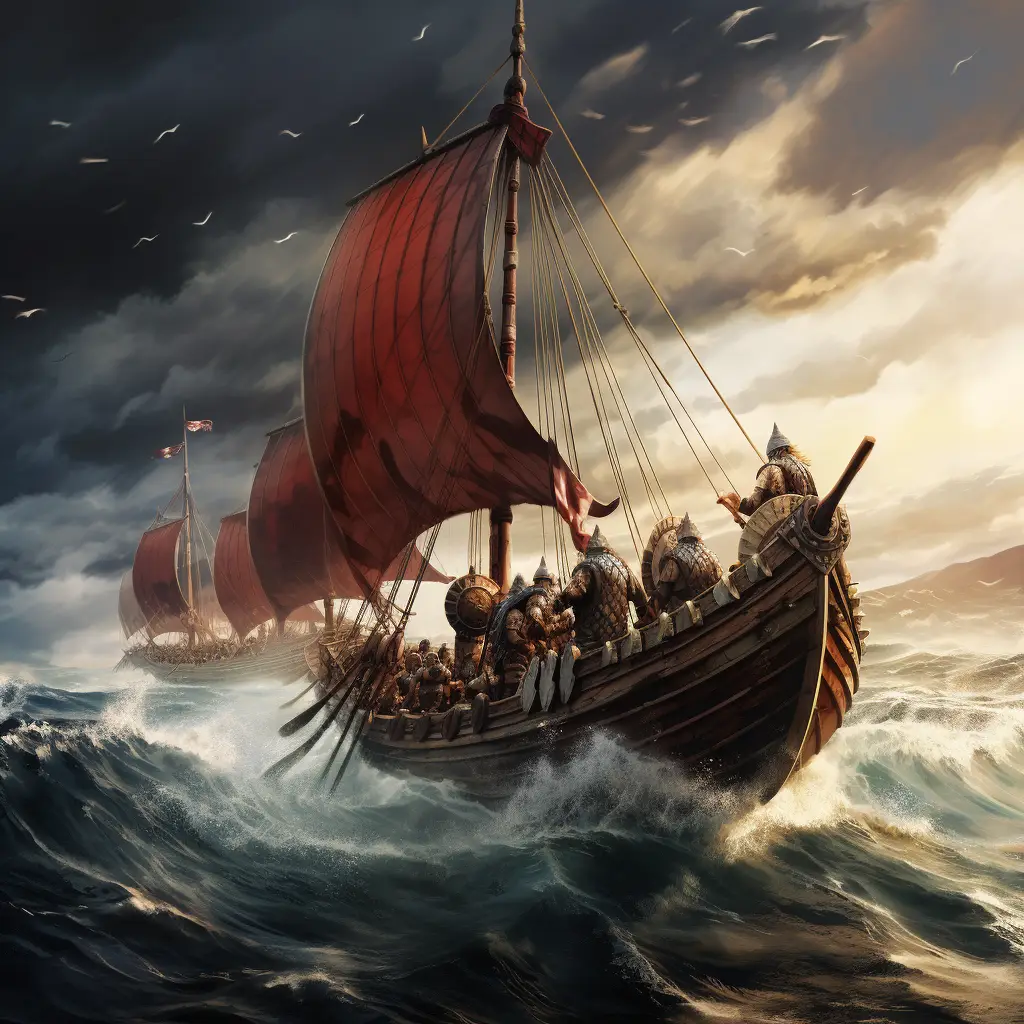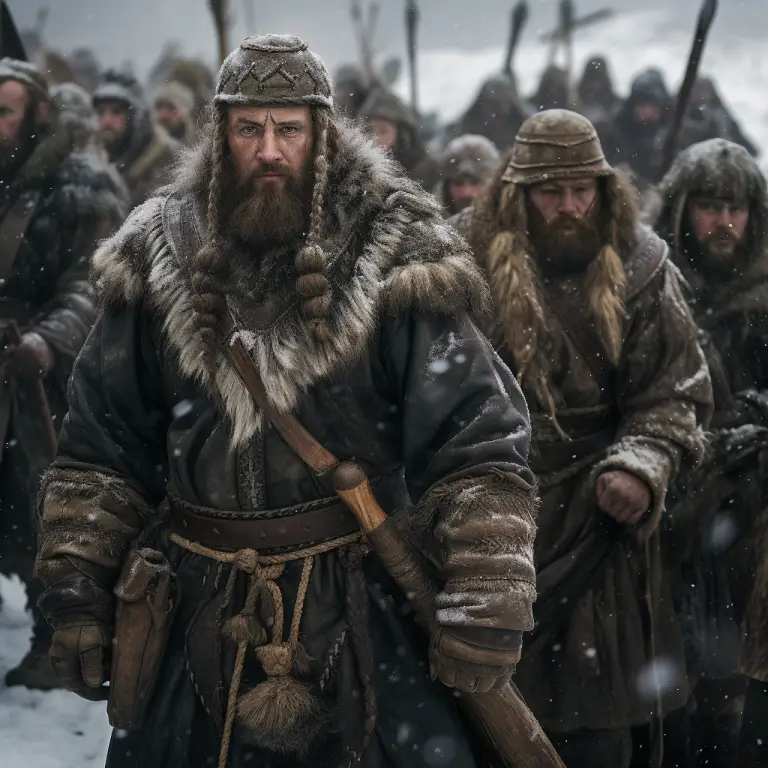The Volga Vikings, also known as the Volga Rus, were a group of Norse people who lived along the Volga River during the Viking Age. They played a significant role in trade, exploration, and cultural exchange between the Scandinavian world and the East, particularly with the Islamic Caliphate and the Byzantine Empire.
Trade and Exploration: The Volga Vikings were active traders who navigated the waterways connecting the Baltic Sea with the Black Sea and the Caspian Sea. They established trade routes that allowed them to reach as far as the Middle East, including regions controlled by the Khazars and the Islamic Caliphate.
Volga River as a Trade Route: The Volga River served as a crucial trade route for the Volga Vikings, connecting them to the vast network of rivers and trade centres in Eastern Europe and Asia. This river route facilitated the exchange of goods, ideas, and cultures.
Establishment of Trading Centres: The Vikings established trading centres along the Volga River, including places like Hedeby (in present-day Germany), Birka (in present-day Sweden), and other settlements in the region. These trading centres were hubs for commerce and cultural exchange.
Cultural Exchange: The Volga Vikings interacted with various cultures along their trade routes. They traded goods such as furs, honey, and slaves for commodities like silver, silk, and spices. This exchange of goods also led to the sharing of technologies, ideas, and artistic influences.
Integration with Local Populations: As the Volga Vikings engaged in trade and exploration, they interacted with local populations, including the Khazars and Turkic-speaking peoples. Over time, the Norse settlers integrated with these communities, leading to a blending of cultures.
Rurik and the Foundation of Rus’: According to historical accounts, the Varangians, a group of Norse warriors, played a role in the establishment of the Kievan Rus’, a federation of East Slavic tribes. Rurik, a legendary Varangian chieftain, is often considered the founder of the Rurik dynasty, which ruled the Kievan Rus’.
Influence on Kievan Rus’: The cultural and political influence of the Volga Vikings extended to the Kievan Rus’, contributing to the formation of a state that played a crucial role in the history of Eastern Europe.
The Volga Vikings’ activities along the Volga River were part of a broader Viking Age expansion and exploration. Their trade networks and cultural interactions had a lasting impact on the development of the early medieval world in both Eastern Europe and the Middle East.
We have taken our laser engraving business name from the Volga Vikings, check out our Facebook Page here

